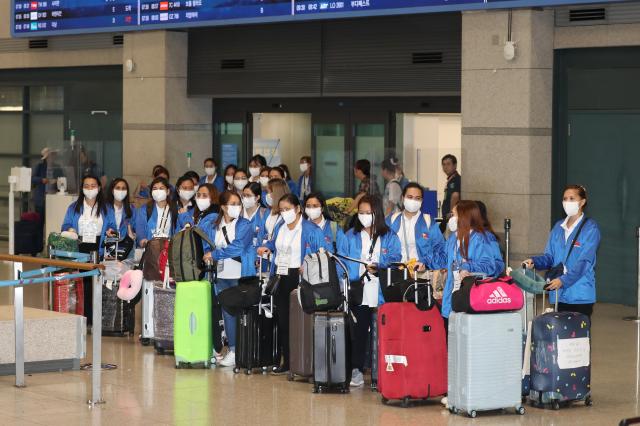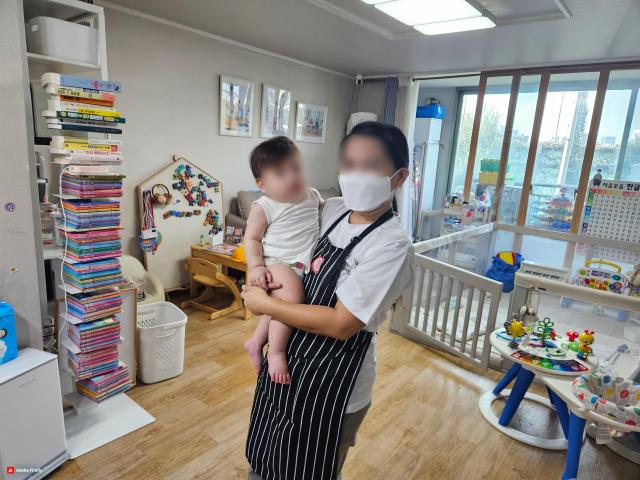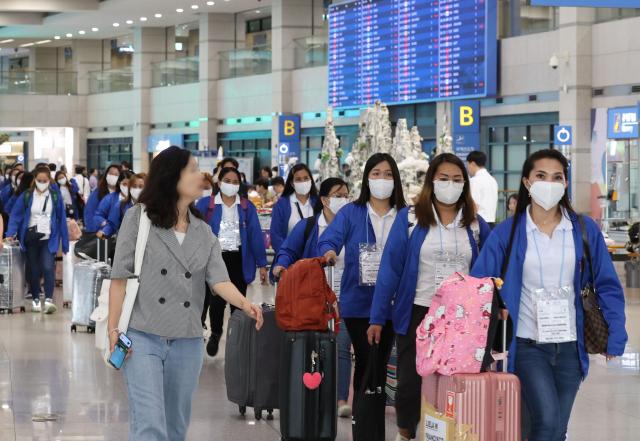
They were hired as maids or nannies under part of a pilot program initiated by the Seoul Metropolitan Government which aims at relieving difficulties faced by young couples who struggle to balance childcare and household chores.
However, their hiring soon faced ensuing problems mainly due to poor management and shoddy procedures in the program. Despite an initially positive response with about 142 households eagerly signing up, the hasty program turned out to be a flop with around two dozen families already canceling for various reasons.
To make matters worse, two helpers were deported last week after going AWOL from their assigned workplaces just two weeks into their jobs and later being caught working illegally at a guesthouse in Busan. They will be banned from reentering the country for a certain period of time.
Most of these workers have reportedly raised complaints about a lengthy billing cycle, a nighttime curfew, and a lack of resting places during their breaks.
The Seoul Metropolitan Government is now pledging to streamline the program with revised guidelines, following consultations with the Ministry of Employment and Labor earlier this month. Some adjustments have already been made to address workers' concerns and improve their working conditions.
For example, the nighttime curfew, which required workers to return to their quarters by 10 p.m. for safety reasons, has been lifted. They will also have the option to receive their paychecks twice a month instead of once, as two-thirds of the workers have opted for this change, citing financial constraints.
In separate measures to reduce job insecurity and retain workers, the ministry is considering extending their visa period from seven months to up to three years.

But opponents argue that their paychecks are calculated based on the country's minimum hourly wage of 9,860 won ($7.30), pointing out that applying different rates to foreign workers would be unfair and violate relevant conventions stipulated by the International Labour Organization (ILO).
Experts suggest looking into similar programs in other countries like Hong Kong and Singapore, where labor policies have evolved to facilitate smoother integration and minimize conflicts between foreign workers and their employers.
But Hong Kong is not bound by ILO conventions since it has not ratified them. Singapore, a multiethnic country with approximately 270,000 foreign workers who often earn lower wages than their local counterparts, does not have specific laws or regulations regarding minimum wages.
"A multi-faceted approach is needed to determine appropriate wage levels that ensure the program here remains effective while protecting workers' labor rights," said Lee Byung-jong, a professor at Sookmyung Women's University. "But the more pressing issue is to eradicate cases where foreign laborers face abuse or discrimination in various forms, regardless of compliance with minimum wage requirements."
Copyright ⓒ Aju Press All rights reserved.




View more comments